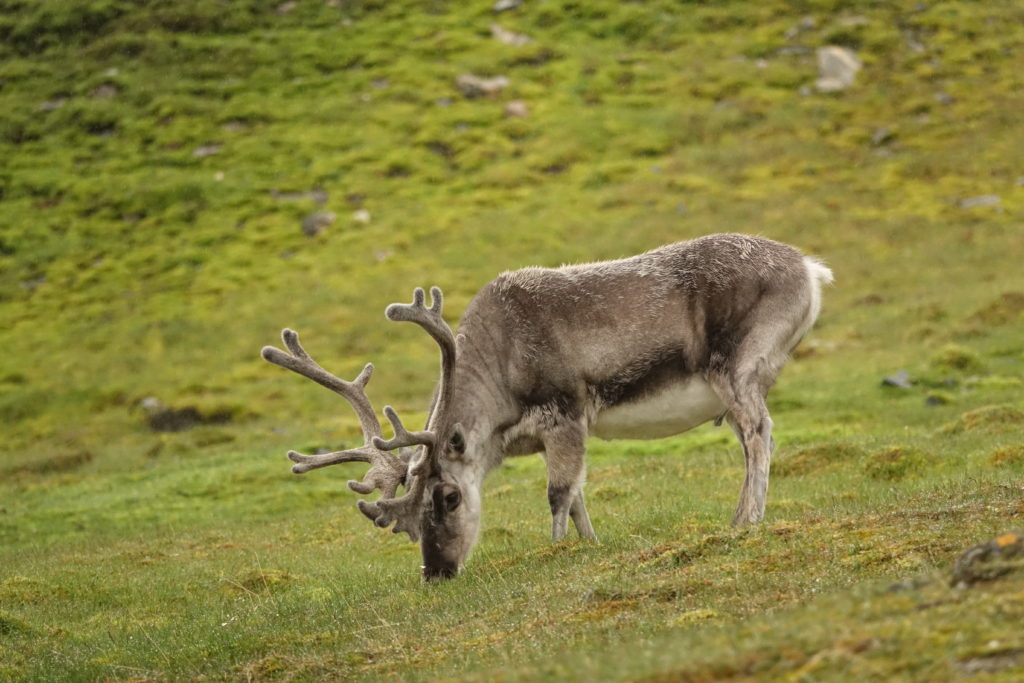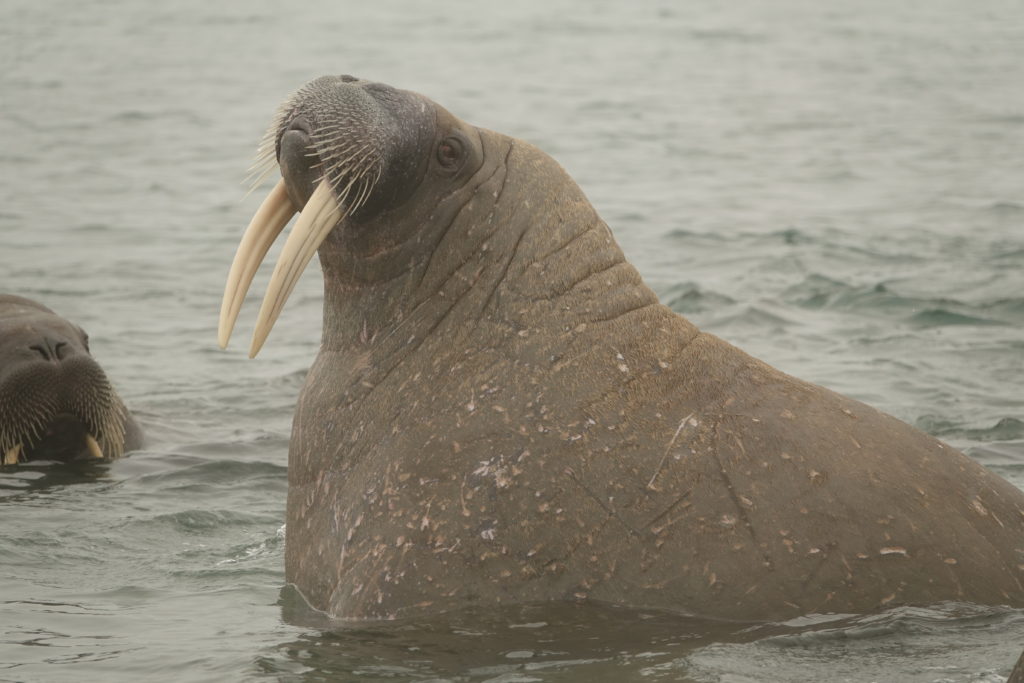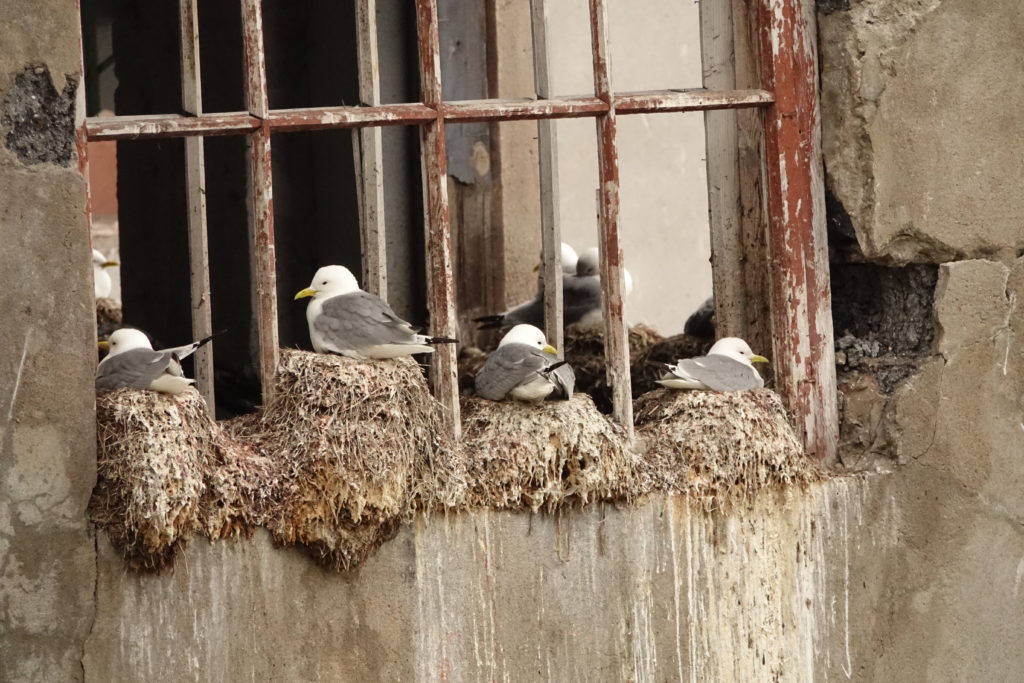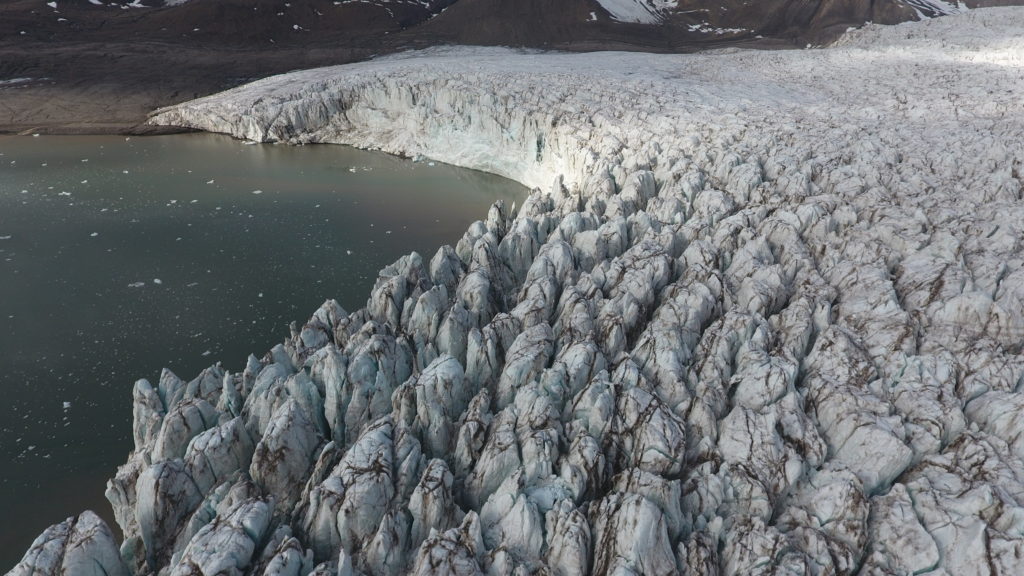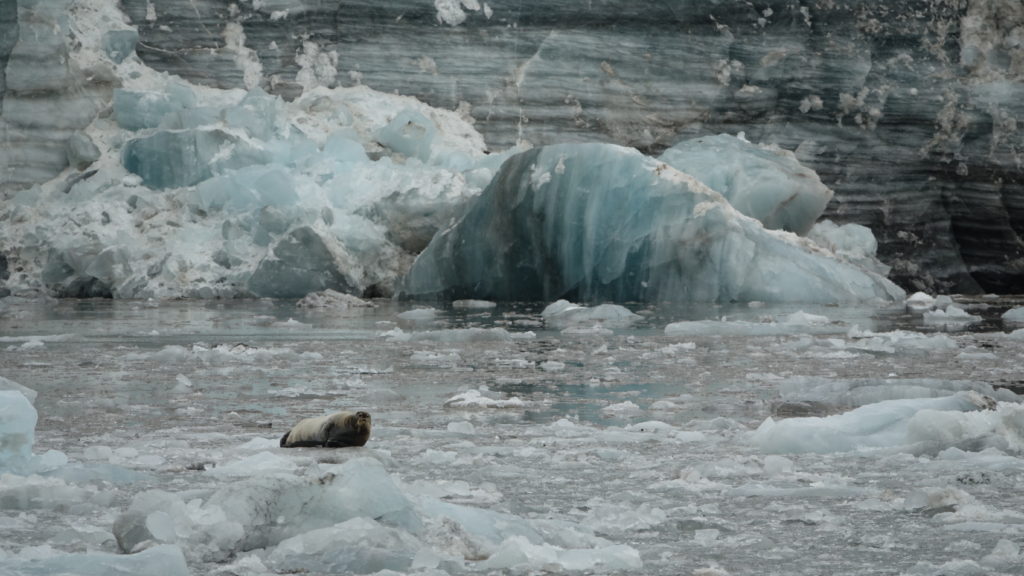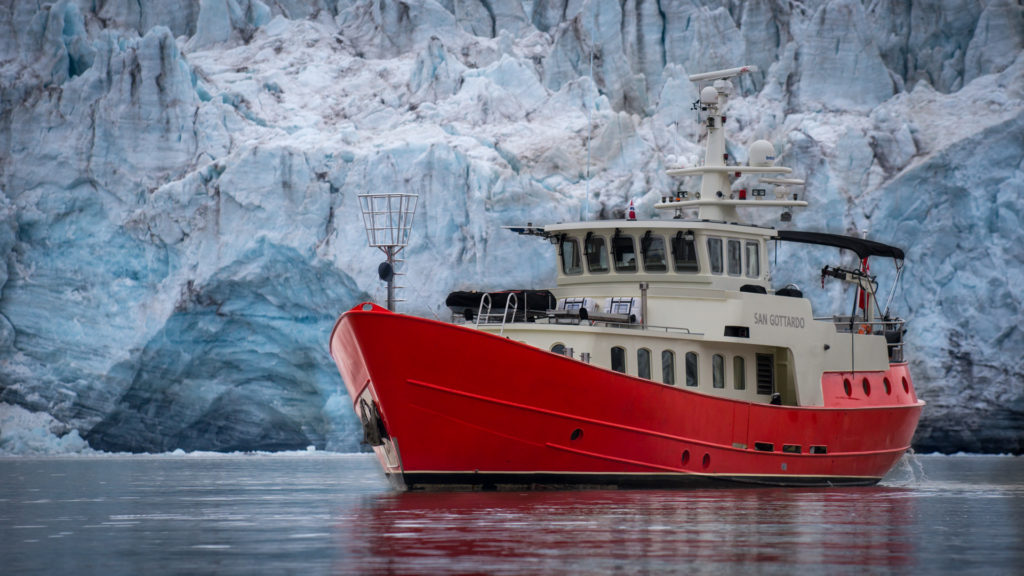Our goal was to document and communicate climate change in the Arctic - one of the most affected places on earth, but we never expected to see or experience some of the things we did there. One of the first places we visited was the impressive “Nordenskjöldbreen” glacier with glacial-front that reaches many hundred meters over the water. The midnight sun gave the ice a beautiful blue colour. I was speechless when Charles Michel, our captain and project initiator, showed us that, at least according to the navigation maps, our ship was floating in the middle of the glacier. He told us that the maps were only three years old but that the glacier had receded so far back that it seemed as if we were navigating the boat across ice.
Exposing Climate Change in the Arctic
by Janine Wetter, 06.09.2018
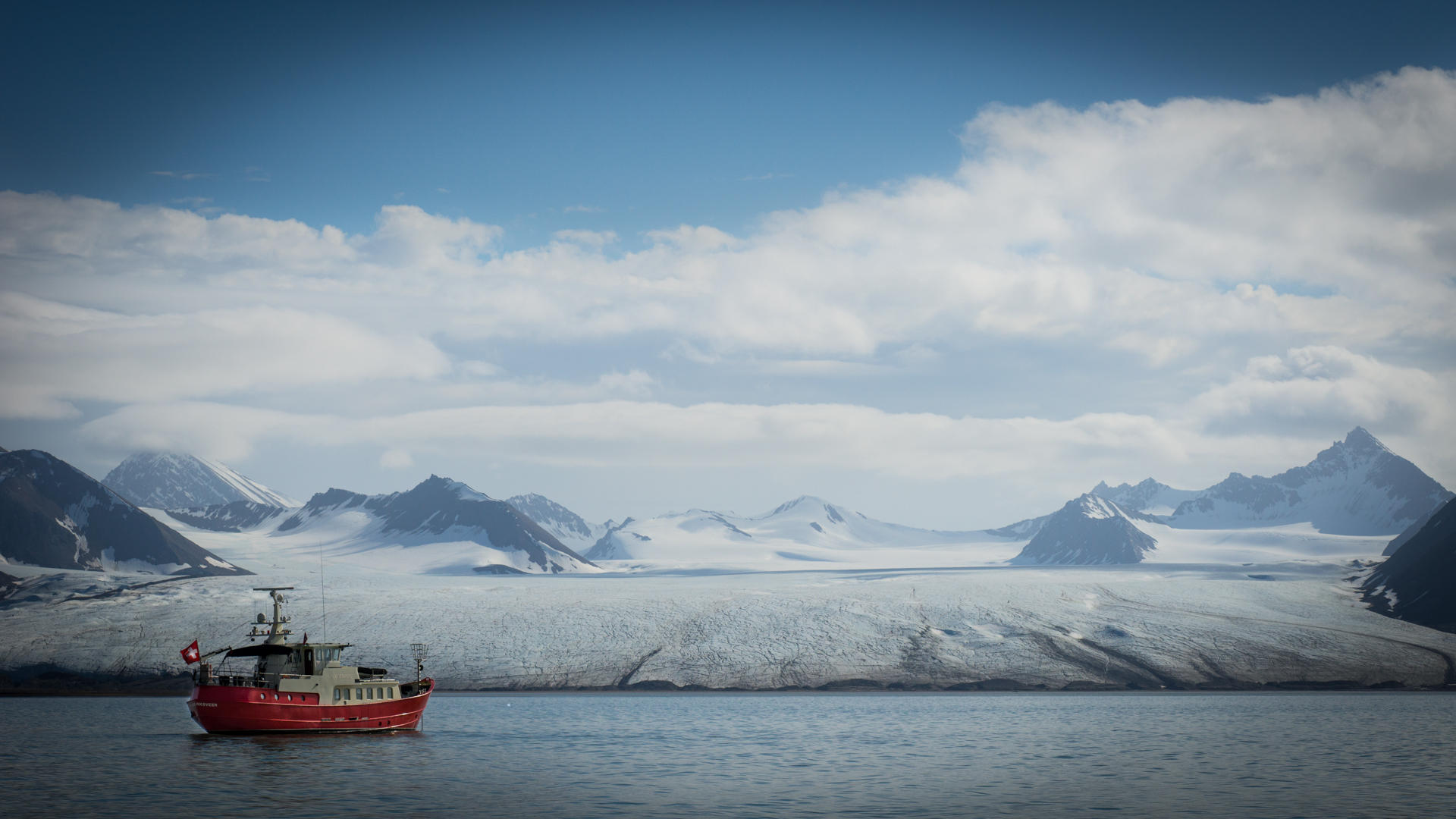
With the ship MV San Gottardo we could stay in front of glaciers and see these huge ice masses with our own eyes. (photo credit: Charles Michel)
In mid-July, when the temperatures in Switzerland seemed to get hotter and hotter, we launched our expedition to one of the coldest places on earth. As a group of 5 young students from Switzerland, we had the opportunity to discover, for ourselves, the mystic world of the Arctic as part of the “Swiss Arctic Project 2018.”
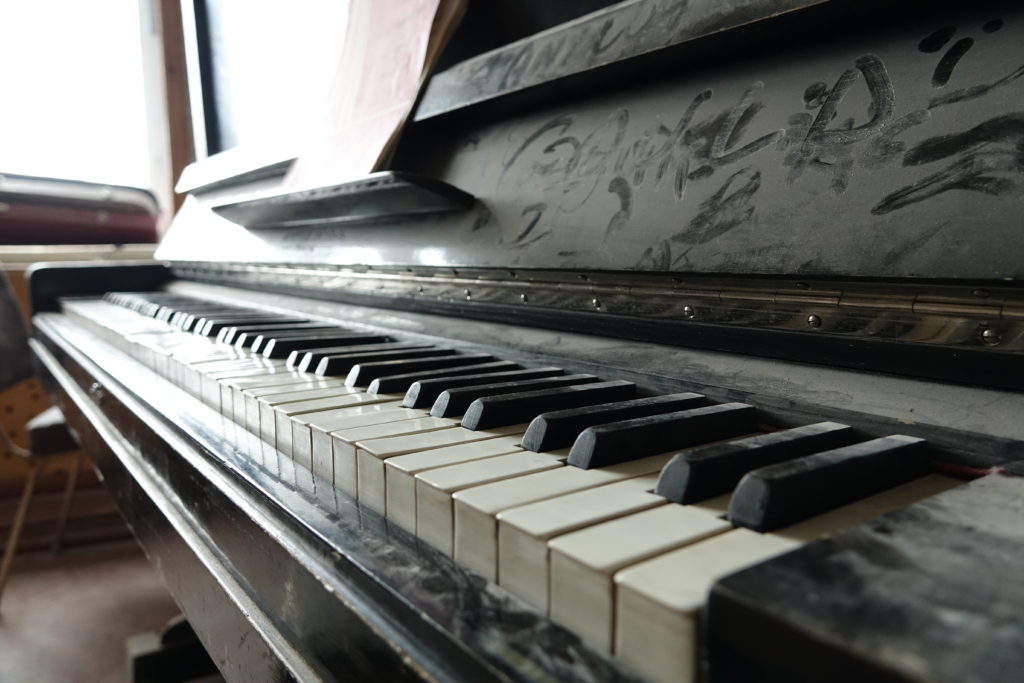
This old piano was left behind by the miner families in the Russian settlement Pyramiden. (photo credit: Janine Wetter/ ETH Zurich)
With the glacier still on my mind, we passed nearby the settlement “Pyramiden,” that was, in earlier years, the northernmost mining settlement in the world. In the 1980s the Russians abandoned the settlement from one day to the next because the mining was no longer profitable. When I walked through the rooms, I could feel how much life was once there. On a wall in the culture house we found a painting of the glacier that we had just visited and it was shocking to see how much it had receded. It was a strange feeling to see the history of this glacier right in front of us.
During our cruise, we also visited the bay Tryghammna where a herd of reindeer lives. It was a magical moment for me to see reindeer in their natural habitat. Some of them even came right up to us. Unfortunately, one of the scientists told me that the reindeer are among the losers in terms of climate change. Climate change will create more rain in Svalbard. When the temperatures are cold, the vegetation will also freeze and the reindeer will no longer be able feed. Also the walruses are losing out because they need sea ice to live. In climate change conditions, the sea ice will soon disappear. I was surprised to see just how much of an impact climate change will have in the Arctic. Not only on the glaciers, but also in the permafrost, on the animal ecosystem, and inevitably on people.
On our last day in the Arctic, we collected water samples for a research project at ETH from a lonely beach. When we landed on the beach in our dinghy, I was shocked to see the huge amount of rubbish lying all around us. Toothpaste tubes, fishing nets, glass bottles, plastic chairs, and empty beer-bottle crates – these were only just a few examples of the trash that had washed up on shore. I never thought that there could be so much rubbish on a beach located so far away from civilisation. Sometimes, I have the feeling that as humans, we act as if we have a second planet and refuse to face the reality that there is no “Planet B.”
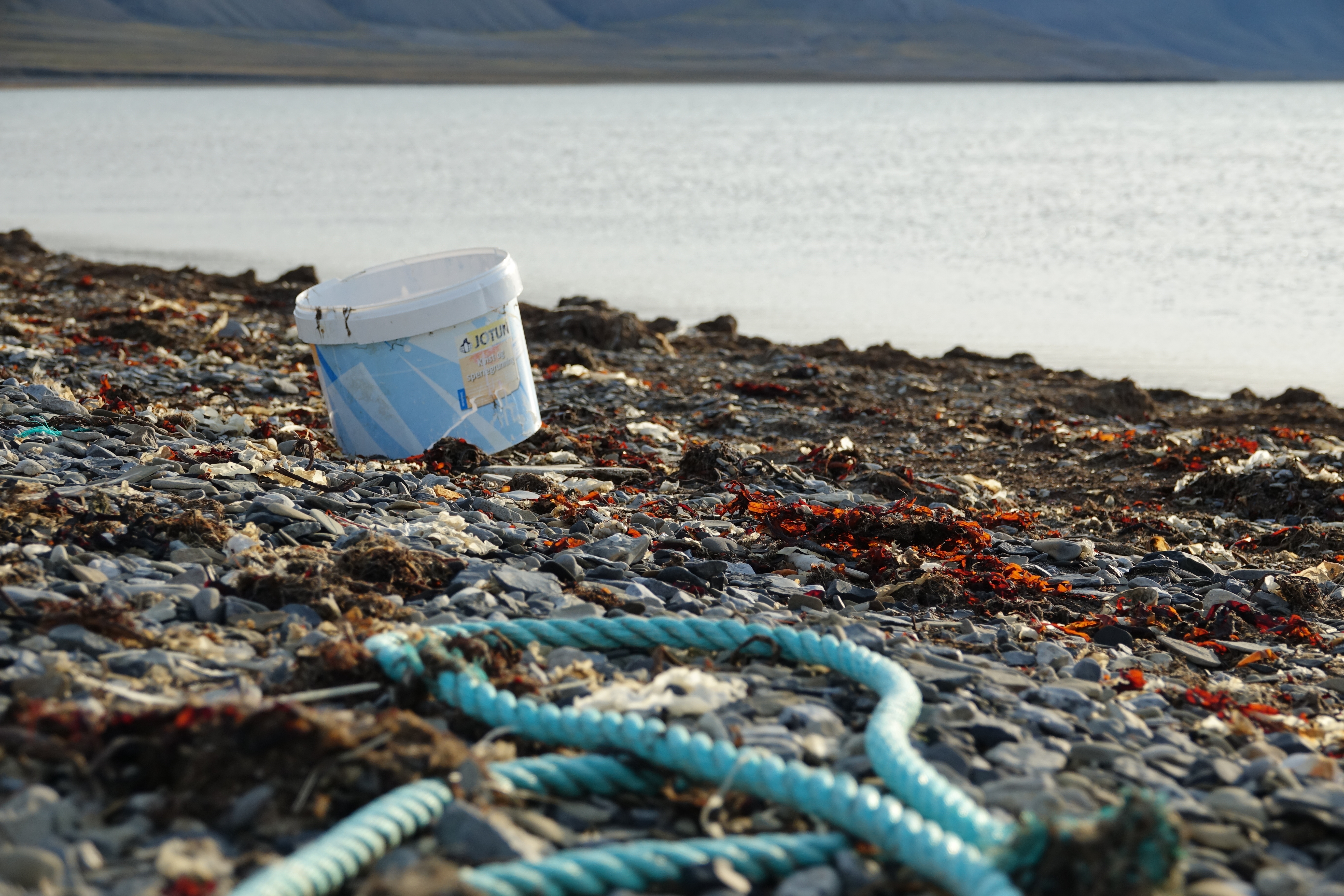
At an abandoned beach our team found huge amounts of plastic and other trash. I could not believe to see so much plastic so far away from civilisation. (photo credit: Janine Wetter/ ETH Zurich)
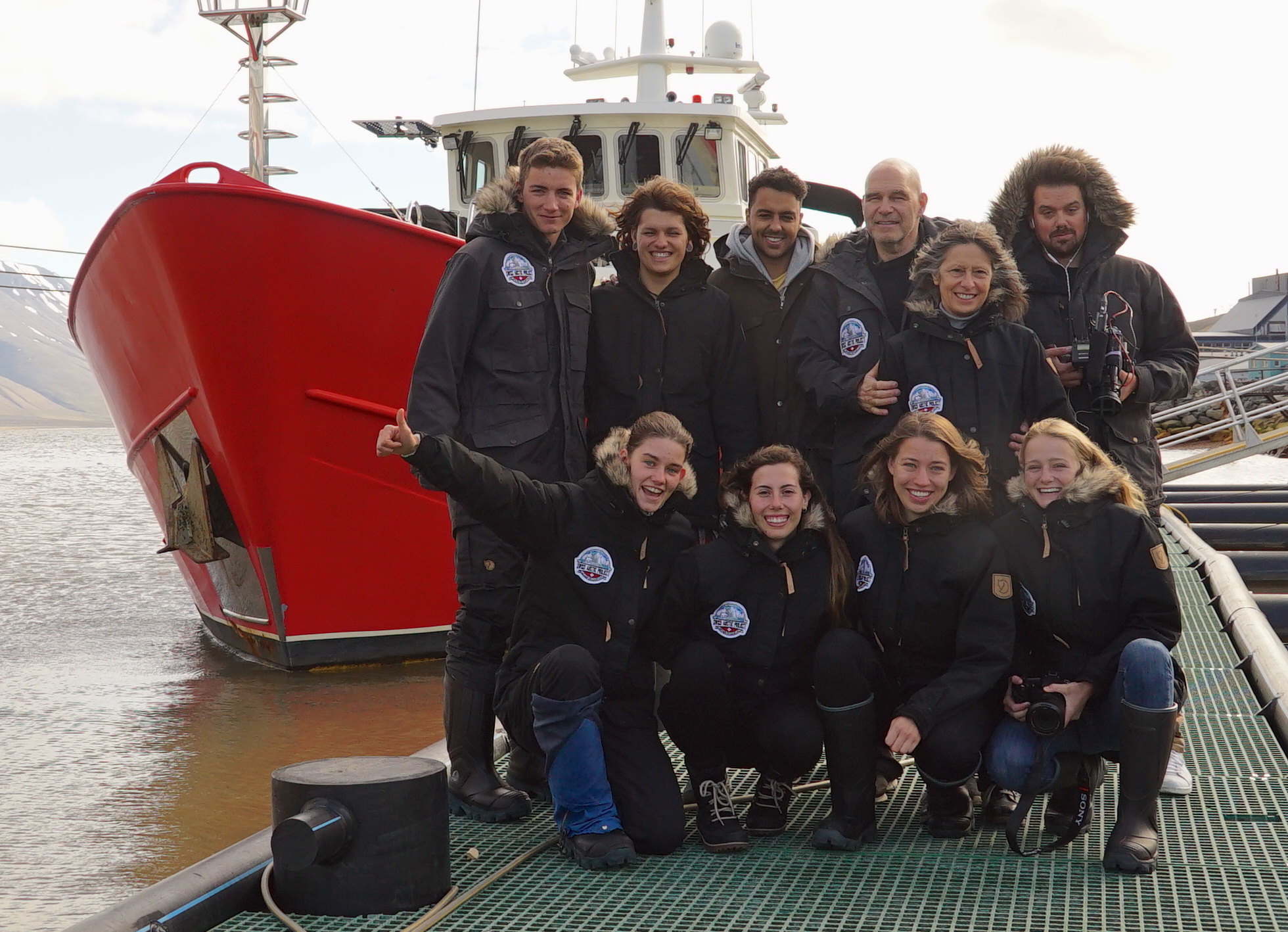
Our team was ready for the Arctic. Together with Antoine (2nd row left), Jasmin, Joëlle and Tessa (1st row from right to left) I started an unforgettable expedition to the Arctic. Charles Michel and Doris Codiga (2nd row second and third from the right) initiated this project. (photo credit: Swiss Arctic Project)
The Arctic fascinated me so much that I decided to study at the university in Svalbard until December this year. It is my hope that we can maintain the delicate climate balance in this world for many years to come, by following the motto of the Swiss Arctic Project,
“Let’s keep our planet cool!”
Find more information on the Swiss Arctic Project (page in German)
Video about removing the trash on the beach (German with English subtitles)
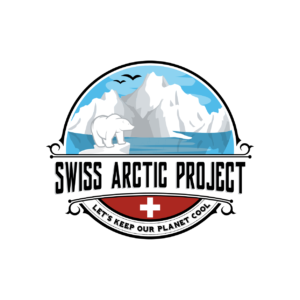

About the author
Janine Wetter is 22 years old and studies Environmental Science at ETH Zurich. She is in the 5th semester of her Bachelor’s degree. She is fascinated by the polar regions and especially interested in the impact of climate change. She visited her first polar region at an age of 17, where she made a documentary about the impact of climate change on penguins in Antarctica as part of her Swiss Matura-work. As a participant of the “Swiss Arctic Project 2018,” she had the chance to explore the Northern Polar Region and to show the effects of climate change in the Arctic, one of the most affected places on earth.

